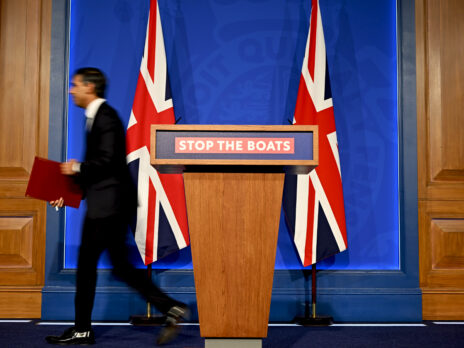
Suddenly, and shockingly, in the wake of Liz Truss and Kwasi Kwarteng’s disastrous “mini-Budget” at the end of September, we are being told that a dramatic return to austerity is needed to plug a “black hole” in the public finances (whose value has been put at anything up to £70bn). Spending cuts similar to those imposed by George Osborne in his first term as chancellor are being mooted. After the lost decade of the 2010s, which academics at the University of Glasgow estimated to have led to over 300,000 excess deaths, this almost beggars belief.
Yet the first round of austerity wasn’t rammed through by wild-eyed ideologues, high on Hayek, but well-groomed Sensibles such as Osborne and his chief adviser, Rupert Harrison, who coldly cut billions from public services even as the economy flatlined and food bank queues lengthened. Both have now returned to haunt Whitehall – Harrison on Jeremy Hunt’s “Economic Advisory Council” and Osborne “back in Downing Street” to dispense his wisdom.
Dystopian warnings of a “fiscal hole”, aided and abetted by supposedly reputable organisations such the Institute for Fiscal Studies, obscure the fact this so-called “hole” is nothing more than a product of the government’s economic forecasts, and its fiscal rule to reduce debt as a share of GDP within three years. Change the forecasts, or the rule, and the hole suddenly disappears – as its variable size in reports over the last few weeks might suggest.
So why the austerity drive? The argument made by the likes of Harrison is that, had Osborne not slashed public spending and sought to reduce debt, the government would not have been able to pay for emergency spending of £400bn during the Covid-19 crisis (owing to an apparent lack of “credibility”).
This is wrong on the specifics. Covid spending during 2020 was covered by an exceptional expansion of the Bank of England’s quantitative easing programme. Between March and November of that year, another £550bn in new electronic money was created by the Bank – which easily covered the additional government borrowing. The Bank was, in effect, printing money to pay for Covid spending. It was the credibility of the Bank of England, and its power to create new money, that made emergency spending possible – not the alleged “credibility” of the Conservative government.
Harrison’s argument also fails in general. As the Marmot Review exhaustively demonstrated, it was the impact of austerity in the decade before Covid-19 that helped to guarantee such appalling outcomes once the pandemic hit. Health and social care services were already run down. Inequality had risen, and with it poverty and widespread vulnerability to medical shocks. Britain had to spend far more than other countries during the pandemic, for worse outcomes, precisely because austerity had left the country so exposed. Austerity meant we sacrificed real resilience for a promise of fake financial security.
Meanwhile, the growth-sapping effects of austerity play out as cuts to public investment undermine investment by private sector companies, and the country settles into the low-investment, low-productivity, low-wage pattern that has become so painfully familiar in the last decade. The New Economics Foundation estimated that in 2018-19 alone the loss to the economy from austerity – when set against potential growth – was around £100bn, or £1,500 for every person in the country.
This is the doom loop that Hunt, Rishi Sunak and the ghosts of 2010 want to drag us back into. As the economy slows, hitting the government’s own targets gets harder and harder – meaning, under their twisted logic, we have to apply more austerity.
It’s quite likely, given the deep unpopularity of spending cuts – including on the Tory back benches – that the Chancellor will decide to repeat another trick of Osborne’s from 2015 and backload spending cuts until after the next general election. It’s essential Labour avoids this trap: reject the “black hole”. Refuse to accept cuts, now or later. Argue for well-funded public services in a high-investment, high-wage economy, taxing the rich if necessary. Break the doom loop.
[See also: Rishi Sunak was meant to heal Tory divisions – but they’re only getting worse]





